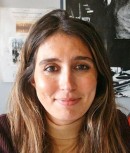

Plenary Lecture
Geometrical Numerical Techniques for the Approximation of Ecological Models Described by Nonlinear Differential Equations

Dr. Fasma Diele
IAC-CNR researcher
via Amendola 122/D
Bari, Italy
E-mail: f.diele@ba.iac.cnr.it
Abstract: A major neglected weakness of many current (non trivial) ecological models is the numerical method used to solve the governing systems of differential equations (DEs). Indeed, the discrete dynamics of the approximations of DEs may provide spurious numerical behaviour. This indicates that many problems widely believed to be endemic to the models, are frequently merely artifacts of their numerical implementation. The approach represented by the geometric numerical integration, by preserving qualitative properties of the solution, leads to improved long-time numerical behaviour. Therefore geometric integration methods should be used for preserving one or more of the properties (positivity of the phase space, Poisson structure, invariants) that characterize the continuous ecological models. The effectiveness of this approach will be shown with some examples of population dynamics.
Brief Biography of the Speaker: Dr. Fasma Diele (female), Master degree in Mathematics, researcher at Istituto per Applicazioni del Calcolo "M.Picone" of the Consiglio Nazionale delle Ricerche (CNR) since 1998, she is the Head of the IAC Research Unit located in Bari. She is author of several papers in numerical analysis and scientific computing. She was referee for Italian University and Research Ministry (MIUR) in the area of Numerical Analysis. She was referee for Proposals in Mathematics of the National Research Fund for Scientific & Technological Development (FONDECYT), Chile. She is reviewer for several mathematics journals such as SIMAX, SINUM, SISC. She is member of the editorial board of Journal of Computer Science and Abstract and Applied Analysis. Her area of expertise is the field of Geometric Numerical Integration of non linear differential equations: methods for preserving invariants, energy-preserving methods, symplectic partitioned Runge-Kutta methods, splitting and composition methods. She was research leader of RSTL id.332 project (funded by CNR), "Numerical algorithms for differential equations with specific qualitative properties". She participated to the FP7-SPACE.2010.1.1-04 project BIO_SOS developing her research activity on symplectic methods for simulating population and metapopulation dynamics in fragmented habitat.